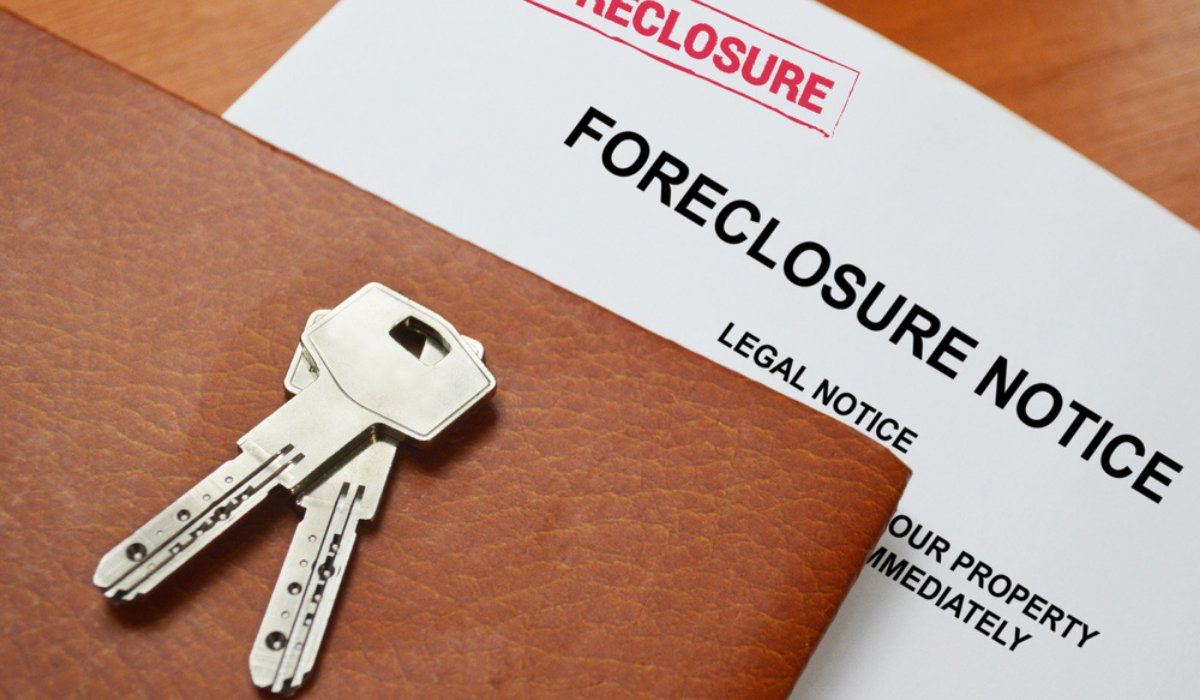Foreclosure: All you need to know about property foreclosure, how it works
What is a foreclosure on a home?
The fundamental premise of foreclosure is straightforward. A foreclosure is defined by the Oxford Dictionary as “the process of taking ownership of someone’s property because they have not paid back money borrowed to buy it.”
If your EMI default period exceeds six months, your house loan agreement contains a clause that provides the lender the ability to repossess and sell your home.
After three missing EMI payments, banks usually start sending letters concerning property seizures. The borrower has 60 days to file an objection. If the borrower fails to do so, the property will be repossessed and the foreclosure procedure will begin.
In significant publications, advertisements for the foreclosed property are placed, requesting bids with a minimum reserve price. Notices of the auction are also posted on the bank’s official website and social media pages. Following that, the bank holds an open market foreclosure auction of the property to recoup the unpaid debt.
When does a bank begin foreclosure proceedings on a property?
If the borrower fails to pay the EMIs on time, a common misconception regarding home foreclosure is that banks are ready to begin the foreclosure process. While it is true that a lender would go to any length to recover money owed to it, property foreclosure is never the first option. Banks will simply levy a penalty if you default on your home loan EMI payment for the first time. They only become concerned and begin sending letters after the default has been in place for three months. If the default persists for six months, the property will be foreclosed on.
It’s worth noting that repossessing homes and selling them at auction is a complicated and time-consuming process that necessitates extensive due diligence as well as large financial outlays. In fact, most Indian banks engage third-party companies to complete the foreclosure process since the costs are so expensive and the process is so difficult. That is why, unless it is absolutely essential, banks will not initiate the property foreclosure procedure.
How can you keep your home from going into foreclosure?
Avoiding the lender in times of financial hardship is one of the most common blunders borrowers make. Even if you are temporarily unable to pay your house loan EMIs, communicating with your bank is critical to avoid property foreclosure. Any financial expert would tell you that you must inform your bank of any reason that may prevent you from making timely EMI payments. Even though the bank may continue to charge a penalty, it would be in your interest for the bank to understand that the situation is temporary and you intend to make complete payment in future.
However, simply expressing your good intentions will not suffice. Your repayment history and previous encounters with the bank will serve as evidence for the bank to believe you and provide you a helping hand when you are in need. As a result, it is critical to keep a solid credit score and bank relationship at all times.
Should you invest in a foreclosed home?
Investing in a foreclosed property has advantages and disadvantages, just like any other investment. Because the bank is eager to sell the property and recoup its funds, it is frequently offered for less than its market value, making it an appealing option for buyers.
The new owner, on the other hand, will be accountable for all legal, financial, and, most crucially, physical obligations that come with the foreclosed property. If the former owner or his tenant refuses to leave, he or she will be required to pay any outstanding utility bills and evacuate the premises. Investing in foreclosed houses only makes sense if the price is low enough that the buyer is willing to accept the additional responsibilities that come with the purchase.
Housing finance is another source of stress. If you want to secure a house loan to buy a foreclosed property, you’ll have a hard time finding lenders who will help you. Normally, the transaction would have to be completed with your funds.
The new owner, on the other hand, will be accountable for all legal, financial, and, most crucially, physical obligations that come with the foreclosed property. If the former owner or his tenant refuses to leave, he or she will be required to pay any outstanding utility bills and evacuate the premises. Investing in foreclosed houses only makes sense if the price is low enough that the buyer is willing to accept the additional responsibilities that come with the purchase.
Housing finance is another source of stress. If you want to secure a house loan to buy a foreclosed property, you’ll have a hard time finding lenders who will help you. Normally, the transaction would have to be completed with your funds.

What documentation are required to foreclose on a property?
To begin property foreclosure, the bank must show documentation proof that the borrower has defaulted on the debt for an extended length of time and will be unable to repay the loan in the near future. It will be required to produce the defaulter’s notices, proof of missing EMIs, and all information concerning the borrower’s outstanding loan liability.
Who is responsible for the costs of foreclosure?
The bank will initially cover the costs of property foreclosure. The cost of property foreclosure is subtracted from the proceeds of the property sale after foreclosure. If the bank can sell the property for more than the amount due by the borrower, the cost of property foreclosure will be deducted from the surplus amount. If there is anything remaining, it will be given to the borrower.
What if a tenant lives in a property that is about to be foreclosed on?
This tenant may not be forced to leave the rental property as long as the foreclosure procedure is ongoing. When the foreclosed property is sold to a new owner, the renter may choose to stay or be evicted, depending on the new owner’s decision.





